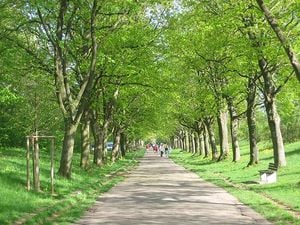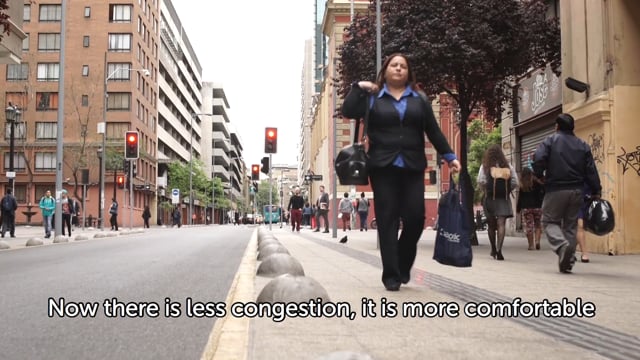
The aim of this page is to recognise, celebrate and encourage the self-empowerment of community agency networks (CANs) and community groups' activism for climate, environment and many other sustainability topics across Chile.
 ‘We are in an era of megafires’: new tactics demanded as wildfires intensify across South America, theguardian.com (Feb 13, 2024)
‘We are in an era of megafires’: new tactics demanded as wildfires intensify across South America, theguardian.com (Feb 13, 2024)  In Chile, huge wildfires have killed at least 131 people – but one village was almost untouched, theconversation.com (Feb 08, 2024)
In Chile, huge wildfires have killed at least 131 people – but one village was almost untouched, theconversation.com (Feb 08, 2024)  The Beyond Oil and Gas Alliance now has 10 core members (Costa Rica, Denmark, France, Greenland, Ireland, Portugal, Quebec, Sweden, Wales, and Washington State), two associate members (California and New Zealand), and five "friends of BOGA" (Chile, Fiji, Finland, Italy, and Luxembourg)., beyondoilandgasalliance.org (Nov 16, 2022) — BOGA is an international alliance of governments and stakeholders working together to facilitate the managed phase-out of oil and gas production, led by the governments of Denmark and Costa Rica
The Beyond Oil and Gas Alliance now has 10 core members (Costa Rica, Denmark, France, Greenland, Ireland, Portugal, Quebec, Sweden, Wales, and Washington State), two associate members (California and New Zealand), and five "friends of BOGA" (Chile, Fiji, Finland, Italy, and Luxembourg)., beyondoilandgasalliance.org (Nov 16, 2022) — BOGA is an international alliance of governments and stakeholders working together to facilitate the managed phase-out of oil and gas production, led by the governments of Denmark and Costa Rica
Networks and sustainability initiatives[edit | edit source]
- Neighbourhood initiatives across Santiago
Biodiversity[edit | edit source]
The wildlife of Chile is very diverse because of the country's slender and elongated shape, which spans a wide range of latitude, and altitude, ranging from the windswept coastline of the Pacific coast on the west to northern Andes to the sub-Antarctic, high Andes mountains in the east. There are many distinct ecosystems.
Chile, often called "the spine of South America", has 100 protected areas covering a total area of 14.5 million hectares (20% of the country) in 36 national parks, 49 national reserves, and 15 national monuments. In the southern part of Chile, 50% of the flora (part of temperate rain forest called the Valdivian forests) is endemic, which is a unique feature in the world. Lapageria rosea (Chilean bellflower) is the national flower, the Andean condor, (Vultur gryphus) (NT) is the national bird, and the South Andean huemul (Hippocamelus bisulcus), is the national animal of Chile. Legally, wildlife in Chile is res nullius (ownerless property).
Urban sustainability[edit | edit source]
About Chile[edit | edit source]
Chile, officially the Republic of Chile, is a country in western South America. It is the southernmost country in the world and the closest to Antarctica, stretching along a narrow strip of land between the Andes Mountains and the Pacific Ocean. Chile had a population of 17.5 million as of the latest census in 2017 and has a territorial area of 756,102 square kilometers (291,933 sq mi), sharing borders with Peru to the north, Bolivia to the northeast, Argentina to the east, and the Drake Passage to the south. The country also controls several Pacific islands, including Juan Fernández, Isla Salas y Gómez, Desventuradas, and Easter Island, and claims about 1,250,000 square kilometers (480,000 sq mi) of Antarctica as the Chilean Antarctic Territory. The capital and largest city of Chile is Santiago, and the national language is Spanish.
Spain conquered and colonized the region in the mid-16th century, replacing Inca rule, but failed to conquer the independent Mapuche people who inhabited what is now south-central Chile. Chile emerged as a relatively stable authoritarian republic in the 1830s after their 1818 declaration of independence from Spain. During the 19th century, Chile experienced significant economic and territorial growth, putting an end to Mapuche resistance in the 1880s and gaining its current northern territory in the War of the Pacific (1879–83) by defeating Peru and Bolivia. In the 20th century, up until the 1970s, Chile underwent a process of democratization and experienced rapid population growth and urbanization, while relying increasingly on exports from copper mining to support its economy. During the 1960s and 1970s, the country was marked by severe left-right political polarization and turmoil, which culminated in the 1973 Chilean coup d'état that overthrew Salvador Allende's democratically elected left-wing government. This was followed by a 16-year right-wing military dictatorship under Augusto Pinochet, which resulted in more than 3,000 deaths or disappearances. The regime ended in 1990, following a referendum in 1988, and was succeeded by a center-left coalition, which ruled until 2010.
External links
Wikipedia: Indigenous peoples in Chile



